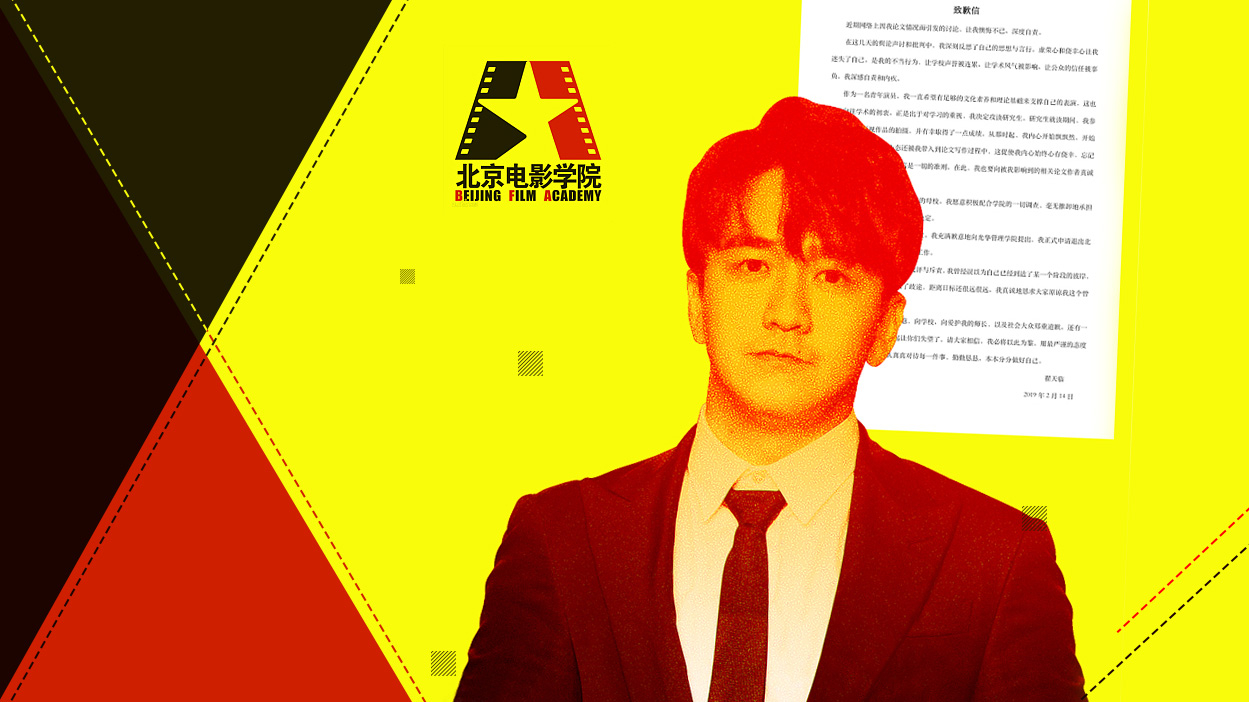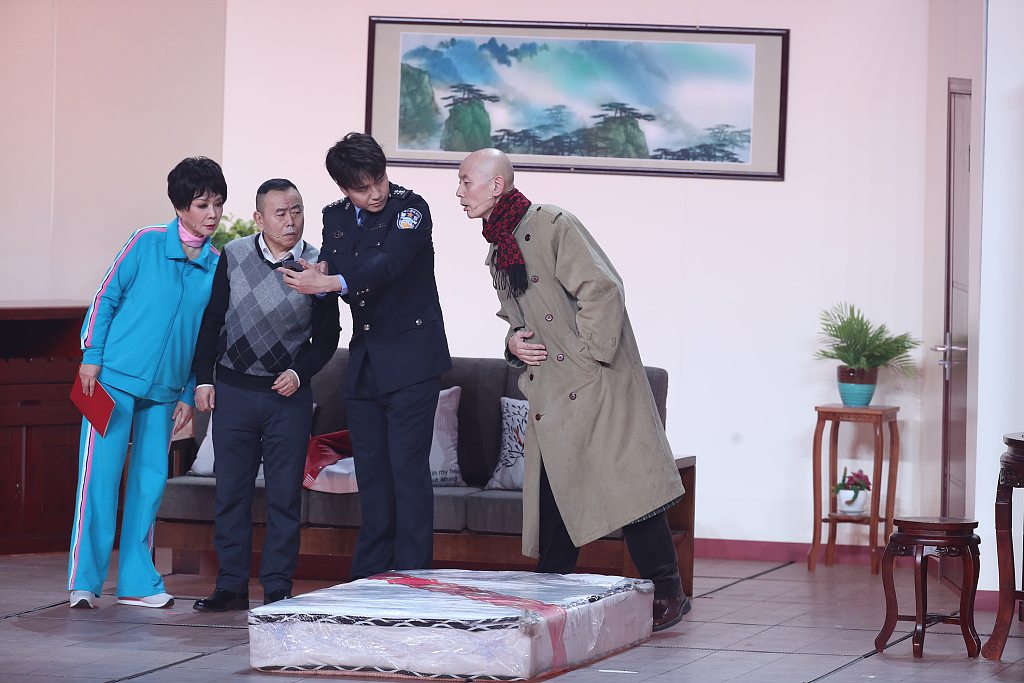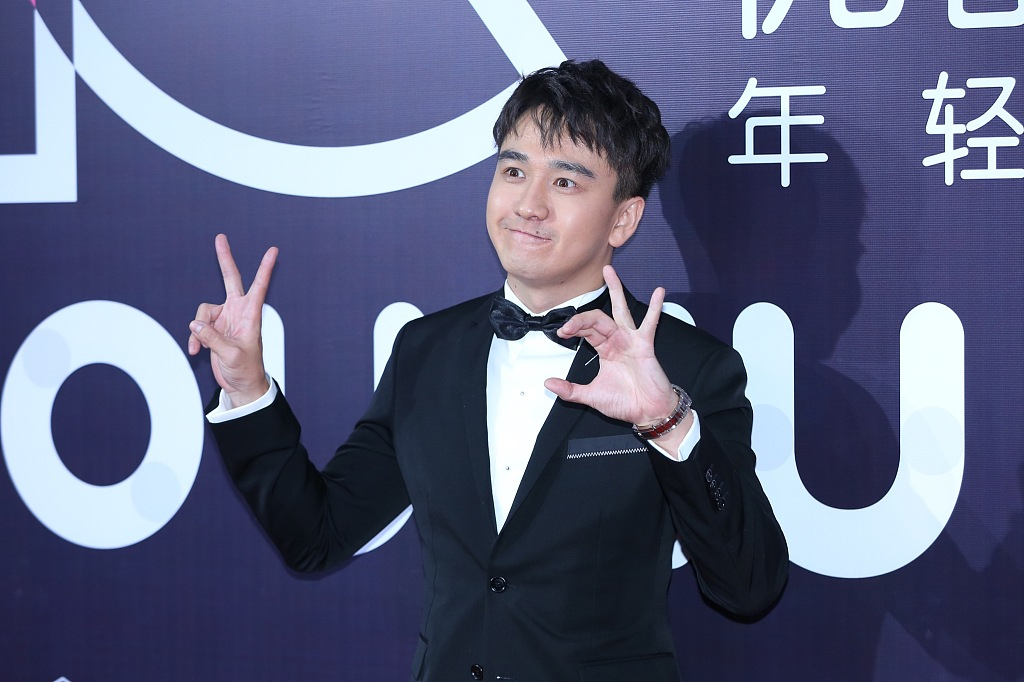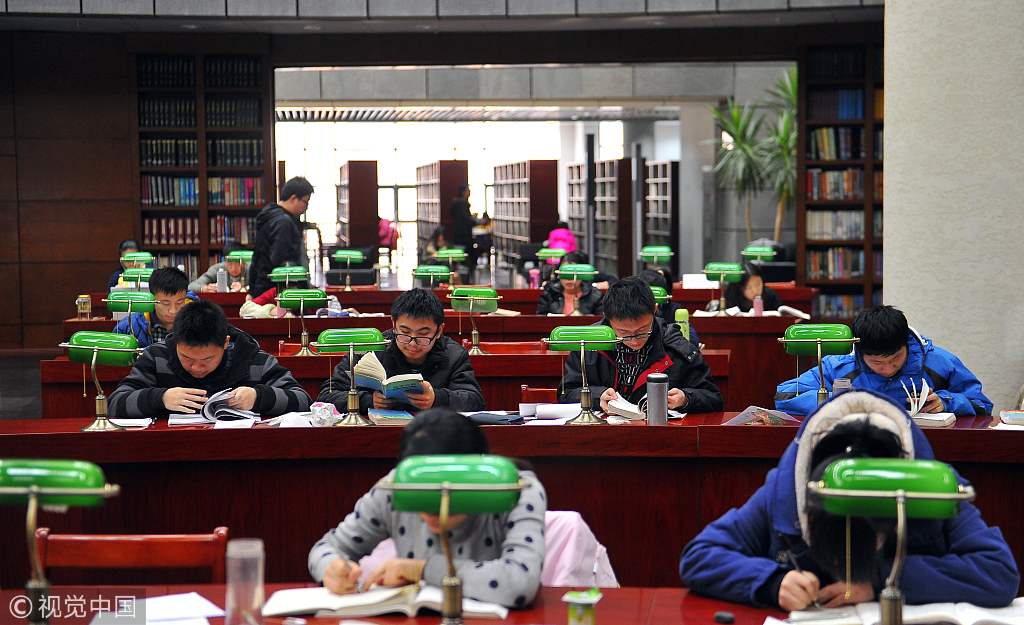
Culture China
16:00, 17-Feb-2019
Zhai's plagiarism case: Why people pursue higher education
Updated
19:57, 17-Feb-2019
CGTN

“Zero tolerance” will be granted for the Chinese film star, Zhai Tianlin, if he is found of committing academic misconduct, China's Ministry of Education said on Friday after a round of national debate over the actor's disputable credential issues.
Zhai, 32, a rising movie star in China, has won tons of praise from the public by playing a police officer fighting against fake news at the Spring Festival gala, the premier television shows in China.
However, only several days later, he turned out to be the object of anti-fake and academic fraud across China.

China's rising movie star won tons of praise from the public after playing a police officer at the Spring Festival gala. /VCG Photo
China's rising movie star won tons of praise from the public after playing a police officer at the Spring Festival gala. /VCG Photo
In a live-streaming session, netizens found out Zhai even had no idea about Zhiwang, China's National Infrastructure platform (CNKI), a state-sponsored academic platform functioning like JSTOR.
How could someone with a doctoral degree have no idea about CNKI?
After getting his bachelor's and master's degree in performing arts at Beijing Film Academy's (BFA) Performing Arts Schools, Zhai obtained his doctoral degree in film studies in 2018 also at the BFA. In 2019, Zhai posted his post-doctoral admission letter of Guanghua School of Management under Peking University, one of the top universities in China.
According to the BFA, all Master's students should publish two academic essays before graduation, with at least one in a major academic journal in China. However, it turned out that Zhai had only published two articles, including one on an online entertainment publication, Zhongyijia.com, and another one on an online media commentary magazine, Guangdian Shipping.

Zhai posed at an event in Beijing in 2018. /VCG Photo
Zhai posed at an event in Beijing in 2018. /VCG Photo
For most doctoral students in China, they go through extreme pressure to publish their articles on Chinese recognized academic journals before they graduate. According to the Chinese Ministry of Education, in 2017, about 362,000 doctorate students graduated with at least 1.6 million doctorate-degree holders working in the academic field, which means over 4.8 million papers needs to be published per year.
However, there are about 6,000 academic journals in China, which could publish over one million papers every year, according to the publishing management division of the State Administration of Press, Publication, Radio, Film and Television.
The serious imbalance between the high demand for publishing papers and supply makes these budding students work hard to get their degree. However, compared with these aspiring doctoral students who have been under so much academic pressure, it seems that people like Zhai have not made as much effort on their theoretical study to get his degree.
On the other hand, what Zhai's case has demonstrated is that potentially the country's elite schools have unfairly lowered enrollment standards for some celebrity candidates and have given privileged people special treatment.
If Zhai has no idea about the basic academic research tool like CNKI, how did he get his Ph.D degree? Does his celebrity status give him some unfair advantage in his academic career? If not, how could this busy actor spend so much time on academic papers?
“Normal students like us have to work hard for over 20 years to get the chance to study at top universities. But people like Zhai easily got an offer from Peking University,” said Xu Bo, a post-doctor in Film Studies, Beijing Normal University.

Students have to work hard for over 20 years to get the chance to study at top universities in China. /VCG Photo
Students have to work hard for over 20 years to get the chance to study at top universities in China. /VCG Photo
Scandals and questions around academic misconduct have come up regularly including mass retraction of the academic papers by Springer and professor resigned from the university involving plagiarism. Meanwhile, consequences for academic misconduct have been consistently introduced in recent years. Punishment is doled out fairly.
In May 2018, to get tough on academic integrity, the Ministry of Science and Technology and the Ministry of Education released rules to "record and assess" the conduct of scientists and institutions and punish people guilty of academic misconduct.
Those who are found to have committed academic misconduct will be banned from teaching or doing any research work in government-run schools and scientific institutions. Their research grants will be canceled and honors revoked, according to the guidelines.
Peking University announced that Zhai would be disqualified after the investigation on February 16.
There is nothing wrong in perusing the chance to get a higher education. A solid grasp of film and theatrical theory can definitely help actors like Zhai to perform better.
By emphasizing the destination instead of the journey, higher education is regarded as a stepping-stone or a status label. To keep people as contenders in China's job market or to get promoted, a higher education degree is a road to nowhere.

SITEMAP
Copyright © 2018 CGTN. Beijing ICP prepared NO.16065310-3
Copyright © 2018 CGTN. Beijing ICP prepared NO.16065310-3